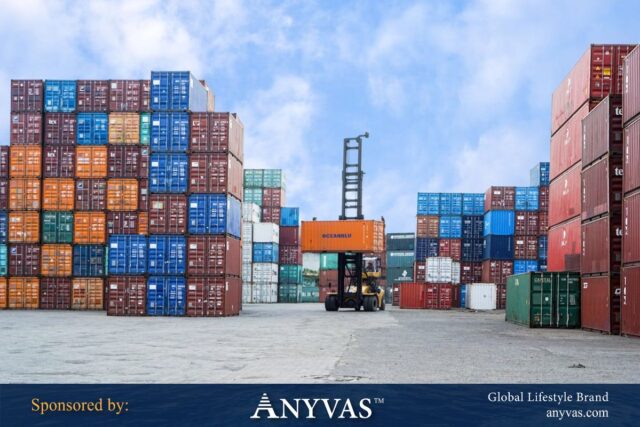The garment industry is central to Bangladesh’s economy, contributing over 80% of the country’s exports. Traditionally, neighboring India has played a key role in Bangladesh’s export logistics, providing a nearby, established route for shipping. However, recent changes suggest that the Maldives is becoming a preferred option for Bangladeshi Ready-Made Garment (RMG) exporters. This shift, driven by cost efficiency, faster shipment options, operational challenges in Dhaka and India, and strategic benefits, is redefining the regional logistics landscape and impacting trade relations.
Cost Efficiency: The Driving Force Behind the Shift
Exporting garments through the Maldives has introduced a significant reduction in shipping costs for Bangladeshi RMG exporters. Previously, shipping garments from Bangladesh to European markets through India incurred expenses ranging between $6.30 and $6.50 per kilogram. However, routing shipments via the Maldives has slashed these costs by up to $1 per kilogram, bringing the expense down to between $3 and $3.50 per kilogram. This reduction is essential for an industry with slim profit margins and high global competition.
For exporters, these savings mean enhanced price competitiveness in the global market, which is especially critical given the increasing focus of international fashion brands on sustainability, cost efficiency, and speed. This reduced cost also opens up greater flexibility for Bangladeshi suppliers to respond to smaller, high-frequency orders from retailers, meeting the demands of fast fashion more effectively.
Faster Shipments: Meeting Tight International Deadlines
Speed is a major factor in global garment supply chains, where delays can mean missed trends, markdowns, or canceled orders. The Maldives offers RMG exporters a quicker, more reliable route to international markets, supported by superior airline connectivity that reduces overall shipment times. This connectivity is vital for Bangladeshi suppliers serving fast fashion brands, which require rapid stock turnover to align with seasonal trends.
The Maldives route provides streamlined port services, reducing delays common in other routes and enabling Bangladeshi exporters to fulfill urgent orders. The shift is not only about cost-saving but also about delivering goods on time, a crucial advantage in a market driven by consumer demand for speed and availability. This faster route helps Bangladesh’s RMG sector align with the high expectations of European and North American buyers who value speed as much as affordability.
Operational Challenges in Dhaka and India
Bangladeshi exporters have faced persistent operational challenges in utilizing Indian logistics infrastructure. At Dhaka’s Hazrat Shahjalal International Airport, limited facilities, high handling costs, and a lack of airline options have hampered efficient shipping. These limitations add to the operational strain on Bangladesh’s export channels, particularly during peak seasons when cargo volumes increase.
Moreover, Indian airports prioritize domestic cargo over Bangladeshi exports, creating delays that disrupt the tightly timed schedules of global garment supply chains. Indian logistics networks, while vast, have shown limitations in prioritizing transit cargo from neighboring countries, leaving Bangladeshi exporters in prolonged wait times.
In contrast, the Maldives offers streamlined processes and a focus on international cargo handling, addressing many of the issues that Bangladesh faces with Indian logistics networks. This makes the Maldives a viable and efficient alternative, better equipped to support the demands of Bangladesh’s garment exporters.
Alternative Route Amid Political and Logistical Constraints
The Maldives has also proven crucial as an alternative route amid recent political disruptions in Bangladesh, which temporarily halted port operations. This disruption underscored the need for a reliable alternative in the region, as any delay in Bangladesh’s garment supply chain could have significant financial and operational repercussions.
Furthermore, economic factors have strained the logistics framework in Dhaka. Due to currency-related issues, cargo planes have reduced flights from Bangladesh, adding another layer of challenge to the export process. The Maldives, in contrast, has fewer currency restrictions affecting its cargo flights, offering Bangladeshi exporters a stable channel for their goods.
Implications for India: Loss of Revenue and Potential Strain on Trade Relations
This redirection of RMG exports from India to the Maldives is expected to impact India’s revenue from cargo handling fees. As one of the world’s largest economies, India stands to lose a significant income stream from its involvement in Bangladesh’s exports, as fewer goods transit through Indian ports.
Additionally, the re-routing could strain trade relations between India and Bangladesh. India has long positioned itself as a trade and logistics hub for South Asia, and the loss of Bangladeshi exports to the Maldives raises questions about the efficiency and competitiveness of India’s logistics infrastructure. In response, Indian authorities are reportedly exploring solutions to retain Bangladeshi exports in their logistics network by addressing some of the bottlenecks and challenges.
For Bangladesh, this shift symbolizes an effort to diversify its trade partners, strengthening its independence in trade logistics and reducing reliance on neighboring countries, especially during politically sensitive times.
Strategic Control Over Supply Chains
For Bangladesh, routing RMG exports through the Maldives grants greater control over its supply chains, a strategic advantage in an industry subject to frequent disruptions. The demand from global fashion brands for timely deliveries and the ongoing risk of disruptions, like the Houthi attacks in the Red Sea that have impacted global shipping lanes, make secure and autonomous supply chains essential.
By diversifying its shipping routes and choosing a reliable partner like the Maldives, Bangladesh enhances its ability to adapt to supply chain challenges. This strategic choice may serve as a model for other sectors in Bangladesh that depend on international markets and require resilient logistics networks to maintain a competitive edge.
A New Chapter in Bangladesh’s Export Strategy
The shift from India to the Maldives marks a pivotal moment in Bangladesh’s export strategy. By choosing a more cost-effective, efficient, and stable partner, Bangladeshi RMG exporters are enhancing their competitive advantage in a demanding global market. This pivot not only reflects the resilience and adaptability of Bangladesh’s RMG sector but also signals a shift in South Asia’s trade dynamics, with the Maldives emerging as a key player in the region’s logistics landscape.
For Bangladesh, the decision represents a strategic move to secure its supply chains and meet the high standards of international buyers. The choice of the Maldives over India is more than a logistical adjustment; it is a calculated decision that supports the long-term sustainability and growth of Bangladesh’s most crucial export sector. As the Maldives continues to support Bangladesh’s shipping needs, this partnership may lay the groundwork for further economic cooperation between the two nations, shaping the future of South Asian trade.
To get more insights from our Perspective section please click here.
Read more write-ups of this author: Click Here

About The Author:
Mirza Rakib Shovon
President
Aristo Tex International





















